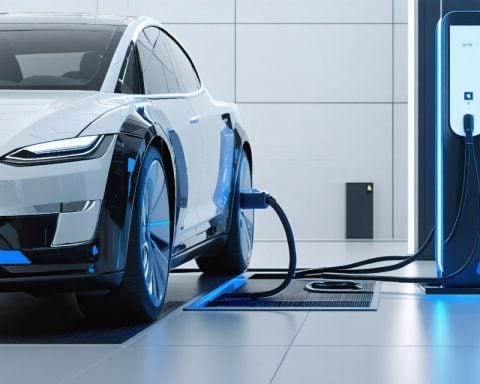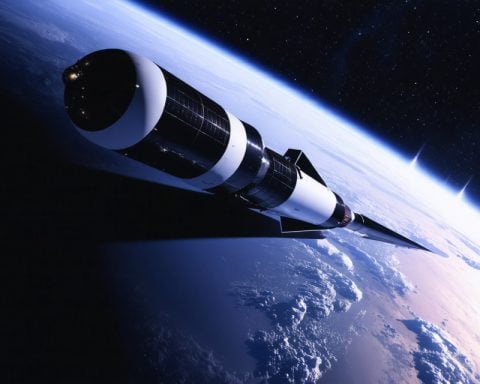The urgent need for environmental conservation has never been more pronounced than in today’s rapidly changing world. With the alarming rates of climate change, biodiversity loss, and pollution, preserving our planet’s ecosystems is critical for maintaining both our health and the health of future generations. This article explores the importance of environmental conservation, the challenges we face, and the actions we can take to protect our planet.
One of the primary reasons for emphasizing environmental conservation is the ongoing threat of climate change. According to the Intergovernmental Panel on Climate Change (IPCC), global temperatures have already risen by approximately 1.2 degrees Celsius since the pre-industrial era. This rise can be attributed to increased levels of greenhouse gases, largely due to human activities such as fossil fuel combustion and deforestation. Without significant action, temperatures could rise by an additional 1.5 degrees Celsius between 2030 and 2052, resulting in severe weather events, rising sea levels, and disruptions to food security.
Biodiversity is another crucial aspect of environmental conservation. The World Wildlife Fund (WWF) reports that wildlife populations have declined by an average of 68% since 1970 due to habitat loss, pollution, and overexploitation. Biodiversity loss threatens the stability of ecosystems, which can lead to the collapse of services that humans rely on, including pollination, clean water, and disease regulation. Protecting diverse ecosystems plays a vital role in ensuring the resilience of the planet against climate change.
Pollution is a pervasive challenge impacting both human health and the environment. The World Health Organization (WHO) estimates that 4.2 million premature deaths occur globally due to ambient air pollution, primarily from industrial emissions, vehicle exhaust, and the burning of fossil fuels. Plastic pollution is similarly alarming, with millions of tons of plastic waste entering the oceans each year, harming marine life, and entering the food chain. Addressing pollution through innovative technologies and stricter regulations is essential for creating a cleaner, healthier environment.
Nevertheless, despite these pressing challenges, there is hope. Environmental conservation initiatives, such as reforestation projects, wildlife protection programs, and sustainable agriculture practices, can create significant positive impacts. An example is the Trillion Tree Campaign, which aims to plant one trillion trees globally, which can help absorb CO2 from the atmosphere and restore ecosystems.
Individual actions also contribute to environmental conservation. Simple changes, such as reducing waste, utilizing public transportation, supporting renewable energy, and purchasing sustainably-sourced products, can collectively lead to substantial progress. Awareness campaigns and education on environmental issues empower communities to engage in conservation activities, creating a grassroots movement for change.
In conclusion, the importance of environmental conservation cannot be overstated. It is imperative that we recognize the interconnectedness of ecosystem health and human well-being. By taking action to address climate change, protect biodiversity, and reduce pollution, we can foster a sustainable future for our planet. The time for action is now; together, we can make a difference.
Essential Tips and Life Hacks for Environmental Conservation
In our quest to protect our planet and ensure a sustainable future, adopting environmentally friendly practices can be easier than you might think. Here are some practical tips, innovative life hacks, and interesting facts that can enhance your personal contribution to environmental conservation.
1. Embrace Minimalism
Adopting a minimalist lifestyle can significantly reduce your environmental footprint. By buying less, you not only save money but also decrease the demand for resources and reduce waste. Consider decluttering your living space by donating items you no longer need, which helps reduce landfill waste.
2. Waste Less, Compost More
Did you know that nearly 30-40% of the food supply in the United States is wasted? Composting is a great way to turn food scraps and yard waste into valuable fertilizer for your garden. This reduces the amount of waste sent to landfills and enriches the soil. You can start composting at home with simple kitchen scraps like fruit peels, vegetable cuttings, and coffee grounds.
3. Go Digital to Reduce Paper Use
In today’s digital age, consider opting for electronic bills, e-books, and digital receipts instead of paper versions. This simple switch can help save trees and reduce deforestation. Furthermore, encourage friends and family to go paperless as well, amplifying your positive impact.
4. Utilize Energy-Efficient Appliances
When upgrading your appliances, look for Energy Star-rated products that consume less energy and water. These may cost more upfront, but they save you money on utility bills in the long run. Every little bit helps in reducing overall energy consumption and greenhouse gas emissions.
5. Support Local and Sustainable Products
By purchasing locally sourced products, you help reduce transportation emissions and support local economies. Look for organic and sustainably sourced foods that are environmentally friendly. Whenever possible, shop at farmer’s markets to get fresh produce with minimal packaging.
6. Advocate for Change
Get involved in local environmental initiatives or campaigns. Whether it’s participating in tree planting events or taking part in clean-up drives, community engagement creates awareness and promotes collective action. Your voice matters; advocating for policies that support environmental conservation can lead to significant change.
7. Learn About Renewable Energy Options
Investigate the possibility of using renewable energy sources such as solar or wind in your home. Many regions offer incentives for solar panel installations, making it more affordable. By choosing renewable energy, you can significantly reduce your carbon footprint.
Interesting Facts:
– The Amazon rainforest produces more than 20% of the world’s oxygen, underscoring the importance of protecting our forests.
– According to the United Nations, transitioning to a circular economy could create up to 600 million jobs by 2030, promoting sustainability.
For more tips on living sustainably and helping conserve our environment, explore the resources available at NRDC and WWF. Together, we can foster a culture of environmental responsibility and play our part in preserving the planet for future generations!







